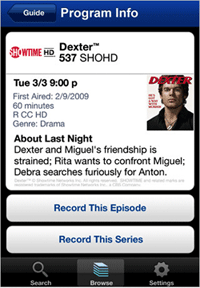I don’t carry a wallet. I keep some cash in my pocket and leave the wallet in the car. All it contains is a few credit cards, an insurance card and my drivers license. But when I couldn’t locate it for a day or so, I was facing the hassle of replacing those few items. No big deal.
Bigger deal? Updating dozens of online accounts that have my credit card info. Being without those services, even for a day, would be a major pain in the ass.
After looking in all the obvious places for my wallet, one of my first thoughts was why can’t I locate my wallet like I do my iPhone? Make it beep or show it on a map.
For that matter, why do we need to carry pieces of plastic at all. My phone is smart enough to contain all of the data and identity represented on the plastic.
I know that in some Asian countries, a growing number of services can be purchased with your mobile phone.
The only part of my life that isn’t backed up is on some pieces of plastic in a little leather envelope. Sad.
UPDATE: Looks like we might be closer than I thought. See link in comments and this story at Apple Insider.

